
The Balkans and the Caucasus have long been regions of strategic importance, serving as conduits between Europe and Asia. For the Center for Eurasian Studies (AVİM), these areas are no longer viewed simply as the center of gravity in a geopolitical seesaw, but rather as vital arteries connecting the heart of Eurasia. As Türkiye's role has evolved into a nexus within this broader Eurasian landscape, the significance of developments in the Balkans and Caucasus has only grown.
In our previous analysis, we examined recent events unfolding in Georgia and the wider Caucasus region, highlighting the complex interplay of domestic politics, international influences, and regional dynamics. As we continue to monitor these crucial areas, it becomes increasingly clear that think tanks like AVİM play a pathfinder role in providing fact-based analysis and insightful commentary on the ever-changing situation in both the Balkans and the Caucasus.[1]
The Balkans, in particular, holds a unique position in the geopolitical landscape. As AVİM has consistently emphasized, this region is not merely a geographical space but a strategic corridor of immense importance for Eurasia. Its significance stems from its role as a transit route connecting Europe and Asia, as well as its historical importance as a crossroads of civilizations and cultures.[2]
Romania, in the Balkan region, warrants special attention in light of recent developments. The country's strategic location on the Black Sea and its position as both a NATO and EU member make it a crucial actor in regional dynamics. Romania's evolving relationships with its neighbors, its efforts to strengthen its position within Euro-Atlantic structures, and its economic development initiatives all contribute to shaping the broader Balkan and European landscape.[3]
In examining Romania's current situation, it is essential to consider how it fits into the larger picture of Balkan integration efforts and regional cooperation. The country's role in initiatives such as the Three Seas Initiative and its stance on issues like energy security and infrastructure development have implications that extend beyond its borders, affecting the entire region and, by extension, the Eurasian nexus.[4]
In the Romanian context, we must also consider how developments there relate to the broader themes explored in our previous analysis of Georgia and the Caucasus. Both regions face challenges related to geopolitical competition, efforts at European integration, and the need to balance various international influences while maintaining their sovereignty and pursuing national interests.[5]
Romania and December 2024 Presidential Elections
In the lead-up to the December 2024 presidential elections, Romania experienced unprecedented political turmoil that culminated in the annulment of the entire electoral process. The first round of voting, held on November 24, 2024, saw the surprising emergence of Calin Georgescu, a far-right populist candidate, as the frontrunner. Georgescu, running as an independent, secured approximately 22% of the vote, outperforming established political figures and defying pre-election polls.[6]
The election's unexpected turn took a dramatic twist on December 6, 2024, when Romania's Constitutional Court made the extraordinary decision to annul the results of the first round, just two days before the scheduled runoff.[7] This unprecedented move was justified by allegations of Russian interference in the electoral process, particularly in support of Georgescu's campaign.[8]
The court's decision was based on newly declassified intelligence reports presented by President Klaus Iohannis. The reports he presented suggested that Romania had been subjected to "aggressive hybrid Russian assaults" during the election period. These reports indicated a coordinated campaign across various social media platforms, including TikTok and Telegram, to promote Georgescu's candidacy.[9]
The annulment threw Romania's political landscape into chaos, with both domestic and international observers expressing shock at the turn of events. Georgescu and his supporters decried the decision as a "coup d'état," while his opponent, Elena Lasconi of the pro-European Union Save Romania Union party, criticized the ruling as undermining democratic principles.[10]
The court's decision mandates that the entire electoral process be restarted, likely delaying the election by several months. This development has raised significant questions about Romania's democratic processes and its vulnerability to external interference, particularly given its strategic importance as a NATO ally bordering Ukraine.[11]
it is also worth acknowledging that the situation has led to some skepticism and accusations of external interference. Some critics have questioned whether the court's decision was truly independent, suggesting potential influence from Brussels.[12]
The situation in Romania reflects the broader challenges faced by democracies in the region, echoing similar concerns about Russian influence in recent elections in Moldova and Georgia.[13] It underscores the complex interplay between national sovereignty, democratic processes, and the threat of foreign interference in an increasingly interconnected digital age.
As Romania grapples with this unprecedented situation, the country faces the dual challenge of safeguarding its democratic institutions while addressing the underlying societal divisions that may have contributed to the rise of far-right populism. The coming months will be crucial in determining how Romania navigates this crisis and what implications it may have for the country's political future and its relationships within the European Union and NATO.
Cycle of Destabilization and Restabilization
Romania's strategic importance in the Balkans has made it a focal point for major powers seeking to influence the region's geopolitical landscape. The country's critical role in the Ukraine war, its position in the Black Sea region, and its involvement in the Three Seas Initiative have attracted the attention of global actors like the United States, the European Union, and Russia. These powers often employ strategies of destabilization followed by restabilization to advance their interests in Romania.
The United States views Romania as a crucial ally in the Balkans, particularly in countering Russian influence. The U.S. strategy involves increasing its military footprint in Romania, with President Klaus Iohannis allowing U.S. troops to be stationed in the country. U.S. uses Romania as a conduit for supplying U.S.-made weapons to Ukraine, further solidifying the U.S.-Romanian alliance. U.S. backs pro-Western politicians like Iohannis, who align with U.S. interests in the region.[14] In this connection, it is worth mentioning that Romania occasionally demands an increase in the US presence in the Black Sea. Although these demands have aspects that are justified within the NATO framework, such demands , in some cases, lead to discussions of controversial initiatives that could open the door to indirect circumvention of the 88-year-old 1936 Montreux Convention Regarding the Regime of the Straits, which authorizes Türkiye as the gate keeper to the Black Sea. It is Türkiye's legitimate right to expect its NATO allies, especially those of bordering the Black Sea, to take into consideration that this issue has a sensitive content in terms of Türkiye's national interests.
On the other hand. the EU's approach to Romania focuses on is mainly economic. It tries to strengthen its position by combining its infrastructure and pouring in money into Romania through initiatives like the Three Seas Initiative.[15]
Russia views Romania's pro-Western stance as a threat to its interests in the Black Sea region. Its approach includes Information Warfare. Conducting influence campaigns and spreading disinformation to sway public opinion. Political Interference by supporting pro-Russian or anti-Western candidates in Romanian elections. Exploiting Divisions by attempting to exacerbate internal political and social tensions within Romania.[16]
The process of destabilization and restabilization in Romania follows a similar pattern we have mentioned in our commentary regarding Georgia. In the initial destabilization phase, external powers work to exploit or create internal divisions. They launch disinformation campaigns aimed at sowing confusion and distrust among the population. Additionally, these powers lend support to political factions that align with their interests, further deepening societal rifts.[17]
This cyclical process allows major powers to reshape Romania's political landscape according to their strategic interests. While the United States and EU strive to maintain Romania's Western orientation, Russia seeks to disrupt this alignment and draw Romania closer to its sphere of influence.
Asymmetric Impacts of Destabilization on Democratic and Authoritarian Systems
Democratic nations are built on principles of transparency, free communication, and public trust in institutions. When these countries engage in destabilizing activities, even for strategic purposes, they risk undermining the very foundations of their political systems. The need to maintain public support and adhere to democratic norms constrains their actions, making them more vulnerable to criticism and backlash.
In contrast, authoritarian regimes like Russia operate with fewer such constraints. They can more easily engage in destabilizing activities without facing significant domestic repercussions. The lack of free press and suppression of dissent allow these regimes to control narratives and limit public awareness of their actions.
Furthermore, democratic societies are more susceptible to the effects of misinformation and disinformation campaigns. The open nature of democratic discourse provides fertile ground for the spread of false narratives, which can erode public trust in democratic institutions. As noted in a Brookings Institution article, the explosion of misinformation has been a key driver in decreasing confidence in democratic political systems.[18]
The impact of such campaigns is evident in the aftermath of the 2020 U.S. presidential election, where widespread belief in electoral fraud persisted despite a lack of evidence. This phenomenon demonstrates how destabilization efforts can have lasting effects on democratic societies, potentially weakening their ability to function effectively.
In essence, while democratic powers must carefully balance their strategic interests with their commitment to democratic values, authoritarian regimes face no such dilemma. This asymmetry in constraints and vulnerabilities makes the destabilization-restabilization cycle particularly challenging for democracies, potentially giving authoritarian actors like Russia a strategic advantage in the global arena.
This destabilization-restabilization vicious circle that we tried to explain above is frequently showing itself in the Caucasus and Balkans regions. It is not possible not to regard this course of events with concern.
Conclusion
The intricate dynamics within the Balkans and Caucasus emphasize the pivotal role these regions play in the broader Eurasian landscape. The situation in Romania, particularly with the December 2024 presidential elections, underscores the vulnerabilities of democracies to external interferences and internal destabilizations. As Romania navigates these complexities, its experiences mirror broader geopolitical challenges and opportunities facing the region.
For AVİM, understanding these nuances is not just about chronicling events but also about offering strategic insights that aid policymakers and scholars. The continued vigilance and insightful analysis provided by think tanks like AVİM are helpful in crafting responses that are informed, nuanced, and proactive. As Türkiye asserts its role as a regional player in this mosaic of geopolitical interests, the imperative to grasp and influence the evolving narratives in these key regions remains a paramount goal.
This synthesis of historical context, current events, and forward-looking strategies highlights the continuous need for a deep and nuanced understanding of the Balkans and Caucasus. AVİM will continue to contribute to efforts to ensure stability and enhance cooperation in the Eurasian region by encouraging informed debate and strategic thinking, and will also strive to strengthen interaction among think tanks in this regard.
*Picture: Republic of Türkiye Ministry of National Defence
[1] Center for Eurasian Studies (AVİM), "The Soft Belly of Europe: The Balkans," November 6, 2012, https://avim.org.tr/en/Yorum/THE-SOFT-BELLY-OF-EUROPE-THE-BALKANS ; Teoman Ertuğrul Tulun, "Georgia's Crossroads: Stability and Sovereignty," Center for Eurasian Studies (AVİM), December 14, 2023, https://avim.org.tr/en/Analiz/GEORGIA-S-CROSSROADS-STABILITY-AND-SOVEREIGNTY.
[2] Center for Eurasian Studies (AVİM), "It Is in Slovenia's Interest to Promote Geopolitical Importance of the Balkans," October 13, 2021, https://avim.org.tr/en/Bulten/IT-IS-IN-SLOVENIA-S-INTEREST-TO-PROMOTE-GEOPOLITICAL-IMPORTANCE-OF-THE-BALKANS.
[3] Teoman Ertuğrul Tulun, "Balkans 2016: Integration Efforts in a Time of Uncertainty," Center for Eurasian Studies (AVİM), Analysis No: 2017/2, January 9, 2017, https://avim.org.tr/en/Analiz/BALKANS-2016-INTEGRATION-EFFORTS-IN-A-TIME-OF-UNCERTAINITY.
[4] Teoman Ertuğrul Tulun, "Tirana Summit Midst Multiple Processes: A Confused European Union in the Balkans," Center for Eurasian Studies (AVİM), Analysis No: 2022/23, December 12, 2022, https://avim.org.tr/en/Analiz/TIRANA-SUMMIT-MIDST-MULTIPLE-PROCESSES-A-CONFUSED-EUROPEAN-UNION-IN-THE-BALKANS.
[5] Teoman Ertuğrul Tulun, "Georgia's Crossroads: Stability and Sovereignty," Center for Eurasian Studies (AVİM), December 14, 2023, https://avim.org.tr/en/Analiz/GEORGIA-S-CROSSROADS-STABILITY-AND-SOVEREIGNTY.
[6] Euronews, "Populist Calin Georgescu Takes Surprise Lead in Romania's Presidential Election," November 25, 2024, https://www.euronews.com/my-europe/2024/11/25/populist-calin-georgescu-takes-surprise-lead-in-romanias-presidential-election.
[7] Luiza Ilie, "Thousands Attend Pro-European Rally in Romania Ahead of Presidential Run-off Vote," Reuters, December 6, 2024, https://www.reuters.com/world/europe/thousands-attend-pro-european-rally-romania-ahead-presidential-run-off-vote-2024-12-06/.
[8] Alina Mungiu-Pippidi, "Why Romania Just Canceled Its Presidential Election," Journal of Democracy, December 8, 2024, https://www.journalofdemocracy.org/online-exclusive/why-romania-just-canceled-its-presidential-election/.
[9] Al Jazeera, "Romania's Top Court Annuls Results of Presidential Election's First Round," December 6, 2024, https://www.aljazeera.com/news/2024/12/6/romanias-top-court-annuls-results-of-presidential-elections-first-round.
[10] Al Jazeera, "Romania's Top Court Annuls Results of Presidential Election's First Round," December 6, 2024, https://www.aljazeera.com/news/2024/12/6/romanias-top-court-annuls-results-of-presidential-elections-first-round.
[11] BBC News, "Romania Election: Court Annuls First Round Results over Russian Interference," December 6, 2024, https://www.bbc.com/news/articles/cx2yl2zxrq1o.
[12] The Moscow Times, "Russia Denies Interfering in Romanian Elections," December 6, 2024, https://www.themoscowtimes.com/2024/12/06/russia-denies-interfering-in-romanian-elections-a87245.
[13] Alina Mungiu-Pippidi, "Why Romania Just Canceled Its Presidential Election," Journal of Democracy, December 8, 2024, https://www.journalofdemocracy.org/online-exclusive/why-romania-just-canceled-its-presidential-election/.
[14] Klaus Iohannis, "Address by the President of Romania, Mr. Klaus Iohannis, and the Transcript of the '20 Years After: The Relevance of the Romanian-US Strategic Partnership in the Current International and Security Context' Debate," Presidency of Romania, November 9, 2024, https://www.presidency.ro/en/media/address-by-the-president-of-romania-mr-klaus-iohannis-and-the-transcript-of-the-20-years-after-the-relevance-of-the-romanian-us-strategic-partnership-in-the-current-international-and-security-context-debate-organized-by-the-heritage-foundation.
[15] Antonia Colibășanu, "A Romanian Perspective on the Three Seas Initiative," The Market for Ideas, accessed December 16, 2024, https://www.themarketforideas.com/a-romanian-perspective-on-the-three-seas-initiative-a314/ .
[16] Suzanne Lynch, "Could Romania Break from EU and NATO?" Politico, December 8, 2024, https://www.politico.eu/article/could-romania-break-eu-and-nato-elections-russia-influence-moldova-georgia-calin-georgescu/ ; George Barros, "Likely Kremlin-Backed Election Interference Against Romania Threatens Bucharest's Pro-Western Orientation," Institute for the Study of War, December 7, 2024, https://understandingwar.org/backgrounder/likely-kremlin-backed-election-interference-against-romania-threatens-bucharests.
[17] Teoman Ertuğrul Tulun, "Georgia's Crossroads: Stability and Sovereignty," Center for Eurasian Studies (AVİM), December 14, 2023, https://avim.org.tr/en/Analiz/GEORGIA-S-CROSSROADS-STABILITY-AND-SOVEREIGNTY.
[18] Darrell M. West, "Misinformation Is Eroding the Public's Confidence in Democracy," Brookings Institution, October 4, 2022, https://www.brookings.edu/articles/misinformation-is-eroding-the-publics-confidence-in-democracy/.
© 2009-2025 Center for Eurasian Studies (AVİM) All Rights Reserved
No comments yet.
-
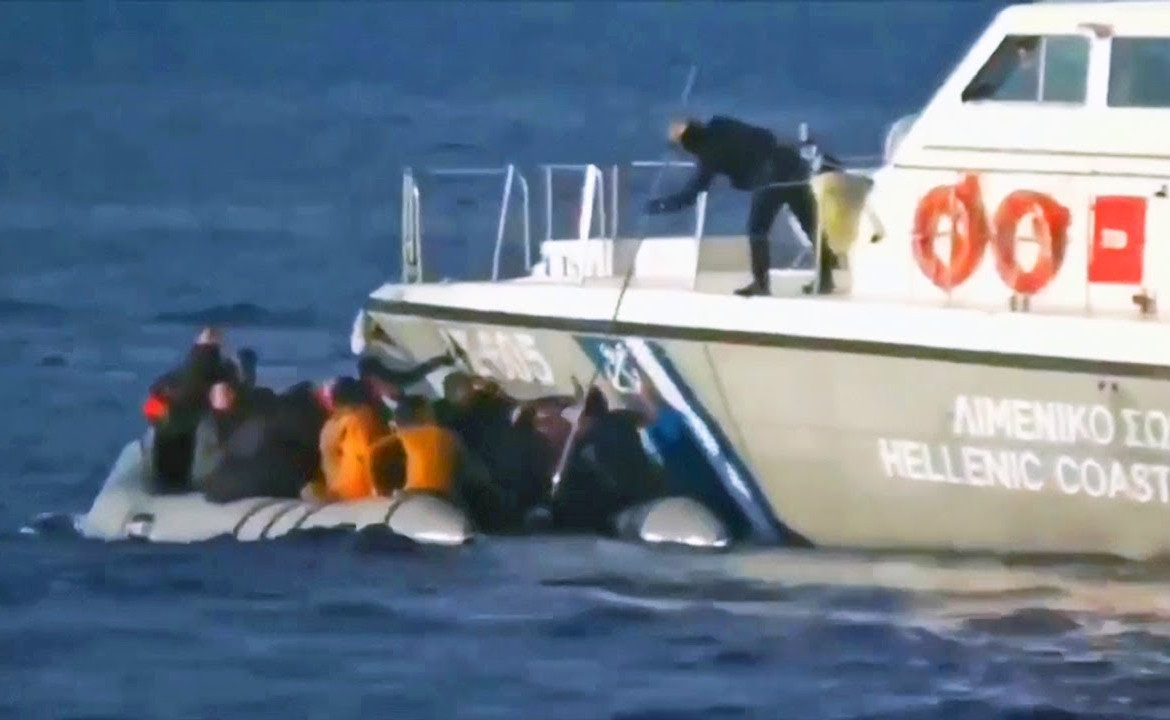 SYRIAN REFUGEE ISSUE: EU INSENSITIVITY VERSUS UK REALISM
SYRIAN REFUGEE ISSUE: EU INSENSITIVITY VERSUS UK REALISM
Teoman Ertuğrul TULUN 31.03.2020 -
 CENTURY OLD “WHITE SUPREMACISM” AND THE FAR-RIGHT’S RISE IN SWEDEN: A CREDIBLE CHALLENGE TO PROGRESSIVE VALUES AND POLICIES?
CENTURY OLD “WHITE SUPREMACISM” AND THE FAR-RIGHT’S RISE IN SWEDEN: A CREDIBLE CHALLENGE TO PROGRESSIVE VALUES AND POLICIES?
Teoman Ertuğrul TULUN 25.01.2018 -
 EU'S FAILURE TO FULFILL ITS HUMAN RIGHTS RESPONSIBILITIES: STATEMENT BY THE EU SPECIAL REPRESENTATIVE FOR HUMAN RIGHTS AT THE UN
EU'S FAILURE TO FULFILL ITS HUMAN RIGHTS RESPONSIBILITIES: STATEMENT BY THE EU SPECIAL REPRESENTATIVE FOR HUMAN RIGHTS AT THE UN
Teoman Ertuğrul TULUN 18.10.2022 -
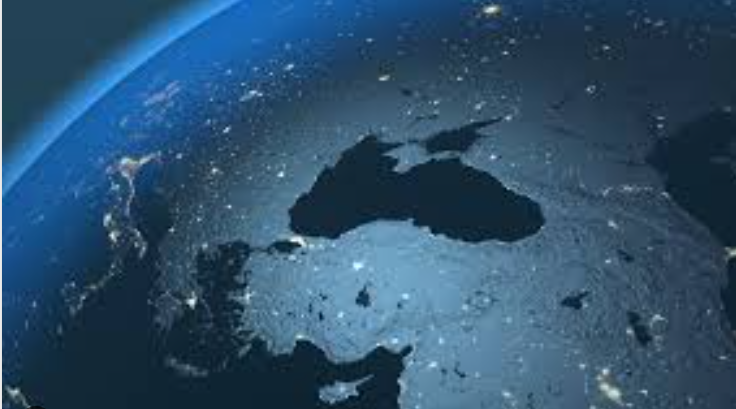 SOVEREIGNTY AND SYNERGY: INTEGRATING MONTREUX CONVENTION COMPLIANCE INTO EU BLACK SEA SECURITY ARCHITECTURE
SOVEREIGNTY AND SYNERGY: INTEGRATING MONTREUX CONVENTION COMPLIANCE INTO EU BLACK SEA SECURITY ARCHITECTURE
Teoman Ertuğrul TULUN 01.07.2025 -
 GOLDEN DAWN IS ATTEMPTING TO REGAIN A PRESENCE IN GREECE WITH A FOCUS ON NORTHERN GREECE AND WESTERN THRACE
GOLDEN DAWN IS ATTEMPTING TO REGAIN A PRESENCE IN GREECE WITH A FOCUS ON NORTHERN GREECE AND WESTERN THRACE
Teoman Ertuğrul TULUN 15.03.2023
-
 SOME CRITICISMS REGARDING PROF. DR. ERIK-JAN ZÜRCHER’S CENTENNIAL STATEMENT
SOME CRITICISMS REGARDING PROF. DR. ERIK-JAN ZÜRCHER’S CENTENNIAL STATEMENT
Mehmet Oğuzhan TULUN 21.04.2015 -
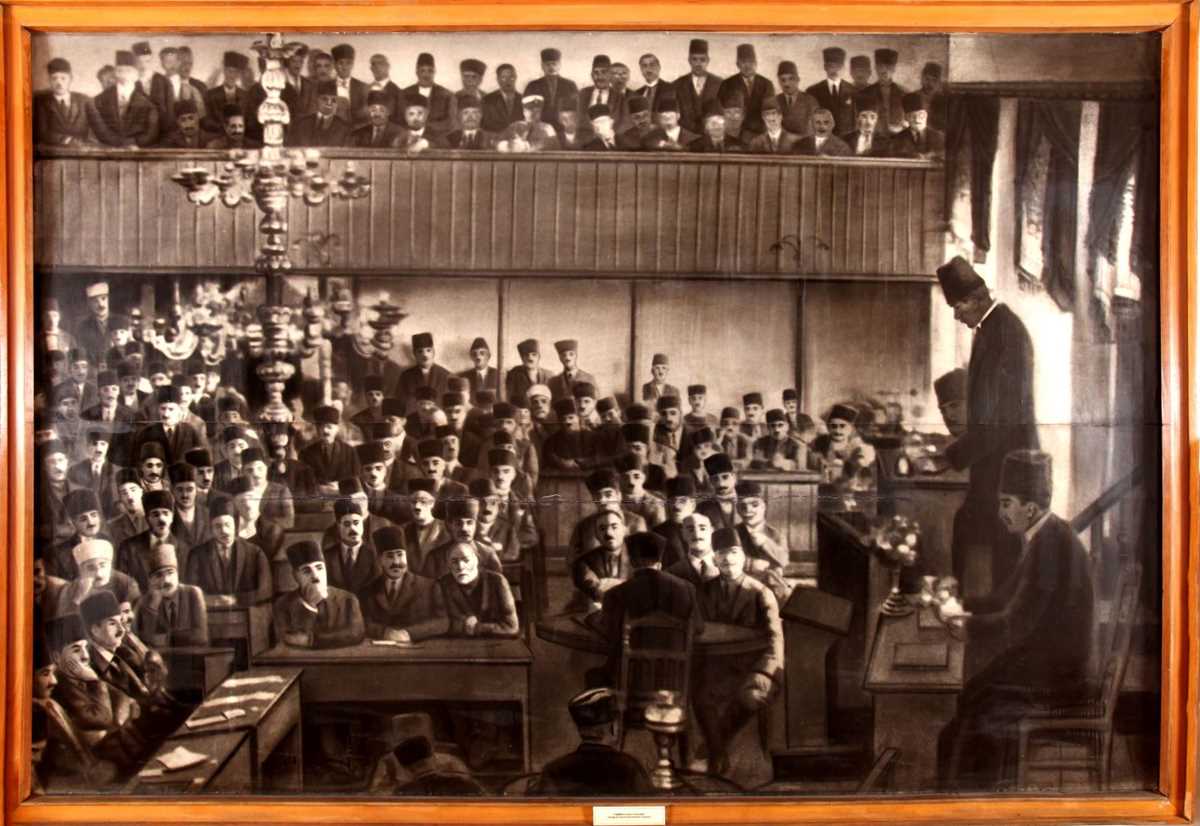 REMEMBERING AND REMINDING THE SIGNIFICANCE, MEANING, AND PROVISIONS OF THE LAUSANNE PEACE TREATY IN ITS CENTENARY
REMEMBERING AND REMINDING THE SIGNIFICANCE, MEANING, AND PROVISIONS OF THE LAUSANNE PEACE TREATY IN ITS CENTENARY
Teoman Ertuğrul TULUN 11.05.2023 -
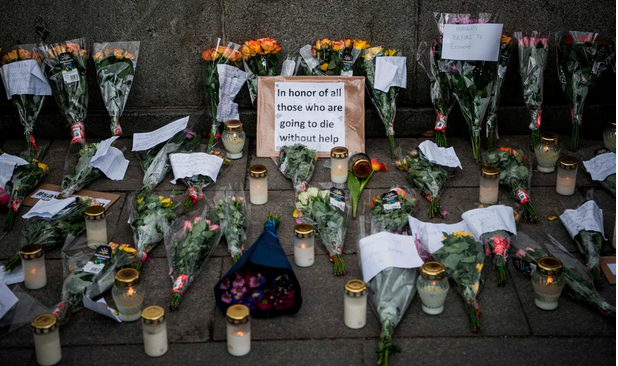 SWEDEN’S CORONAVIRUS FIGHT STRATEGY AND BITTER MEMORIES OF PAST EUGENIC PRACTICES
SWEDEN’S CORONAVIRUS FIGHT STRATEGY AND BITTER MEMORIES OF PAST EUGENIC PRACTICES
Teoman Ertuğrul TULUN 04.05.2020 -
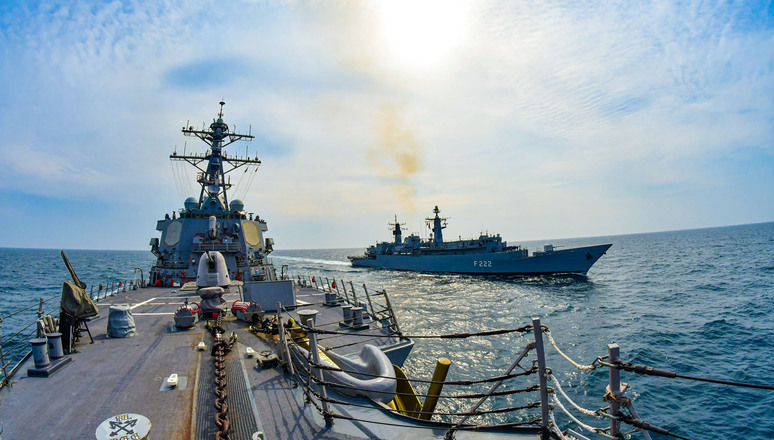 THE GRAIN INITIATIVE AND THE BLACK SEA SECURITY - II
THE GRAIN INITIATIVE AND THE BLACK SEA SECURITY - II
Turgut Kerem TUNCEL 03.08.2023 -
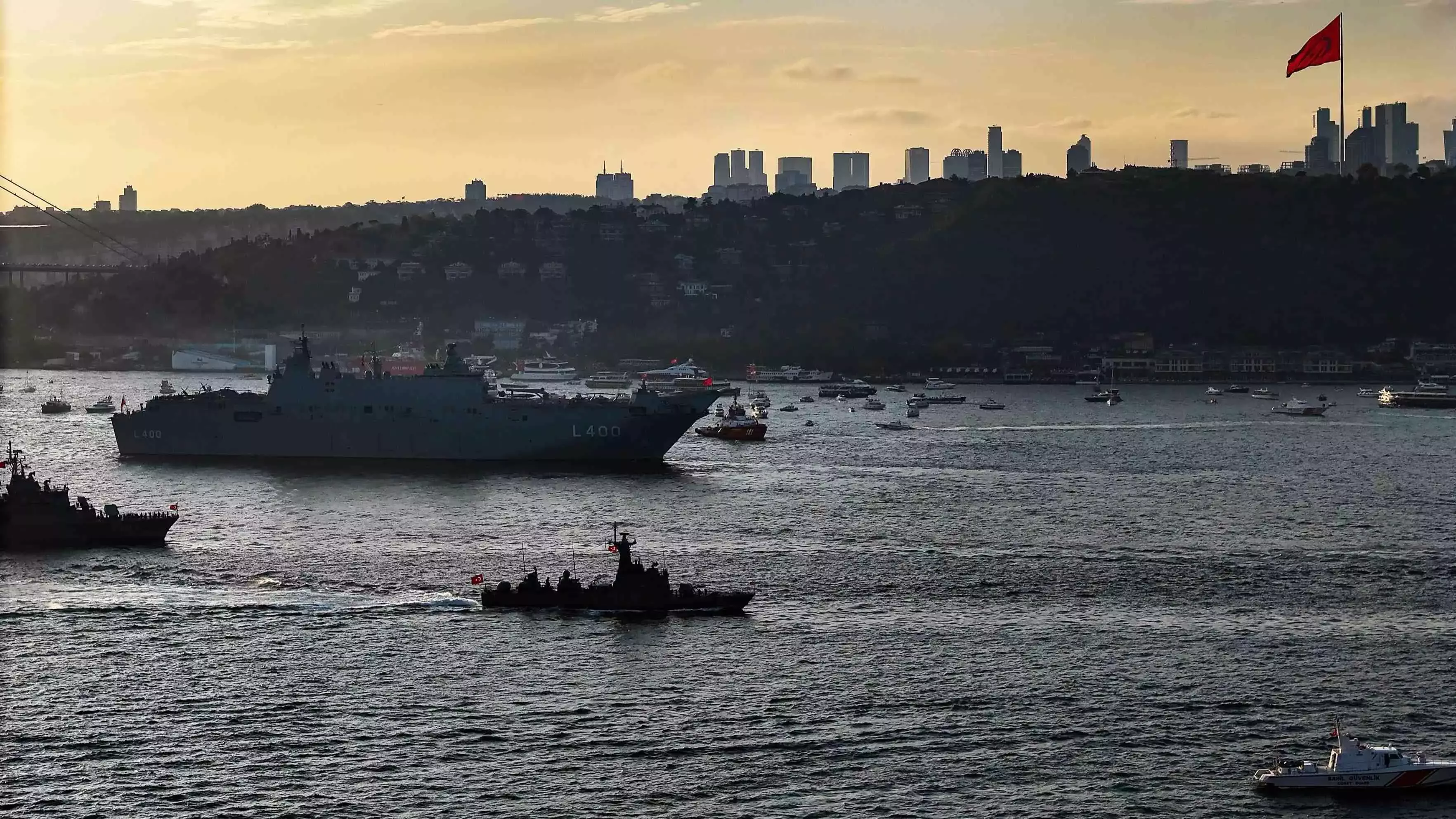 EFFORTS TO CHANGE OR CIRCUMVENT THE PROVISIONS OF THE 1936 MONTREUX STRAITS CONVENTION
EFFORTS TO CHANGE OR CIRCUMVENT THE PROVISIONS OF THE 1936 MONTREUX STRAITS CONVENTION
Teoman Ertuğrul TULUN 28.03.2024
-
25.01.2016
THE ARMENIAN QUESTION - BASIC KNOWLEDGE AND DOCUMENTATION -
12.06.2024
THE TRUTH WILL OUT -
27.03.2023
RADİKAL ERMENİ UNSURLARCA GERÇEKLEŞTİRİLEN MEZALİMLER VE VANDALİZM -
17.03.2023
PATRIOTISM PERVERTED -
23.02.2023
MEN ARE LIKE THAT -
03.02.2023
BAKÜ-TİFLİS-CEYHAN BORU HATTININ YAŞANAN TARİHİ -
16.12.2022
INTERNATIONAL SCHOLARS ON THE EVENTS OF 1915 -
07.12.2022
FAKE PHOTOS AND THE ARMENIAN PROPAGANDA -
07.12.2022
ERMENİ PROPAGANDASI VE SAHTE RESİMLER -
01.01.2022
A Letter From Japan - Strategically Mum: The Silence of the Armenians -
01.01.2022
Japonya'dan Bir Mektup - Stratejik Suskunluk: Ermenilerin Sessizliği -
03.06.2020
Anastas Mikoyan: Confessions of an Armenian Bolshevik -
08.04.2020
Sovyet Sonrası Ukrayna’da Devlet, Toplum ve Siyaset - Değişen Dinamikler, Dönüşen Kimlikler -
12.06.2018
Ermeni Sorunuyla İlgili İngiliz Belgeleri (1912-1923) - British Documents on Armenian Question (1912-1923) -
02.12.2016
Turkish-Russian Academics: A Historical Study on the Caucasus -
01.07.2016
Gürcistan'daki Müslüman Topluluklar: Azınlık Hakları, Kimlik, Siyaset -
10.03.2016
Armenian Diaspora: Diaspora, State and the Imagination of the Republic of Armenia -
24.01.2016
ERMENİ SORUNU - TEMEL BİLGİ VE BELGELER (2. BASKI)
-
AVİM Conference Hall 24.01.2023
CONFERENCE TITLED “HUNGARY’S PERSPECTIVES ON THE TURKIC WORLD"









